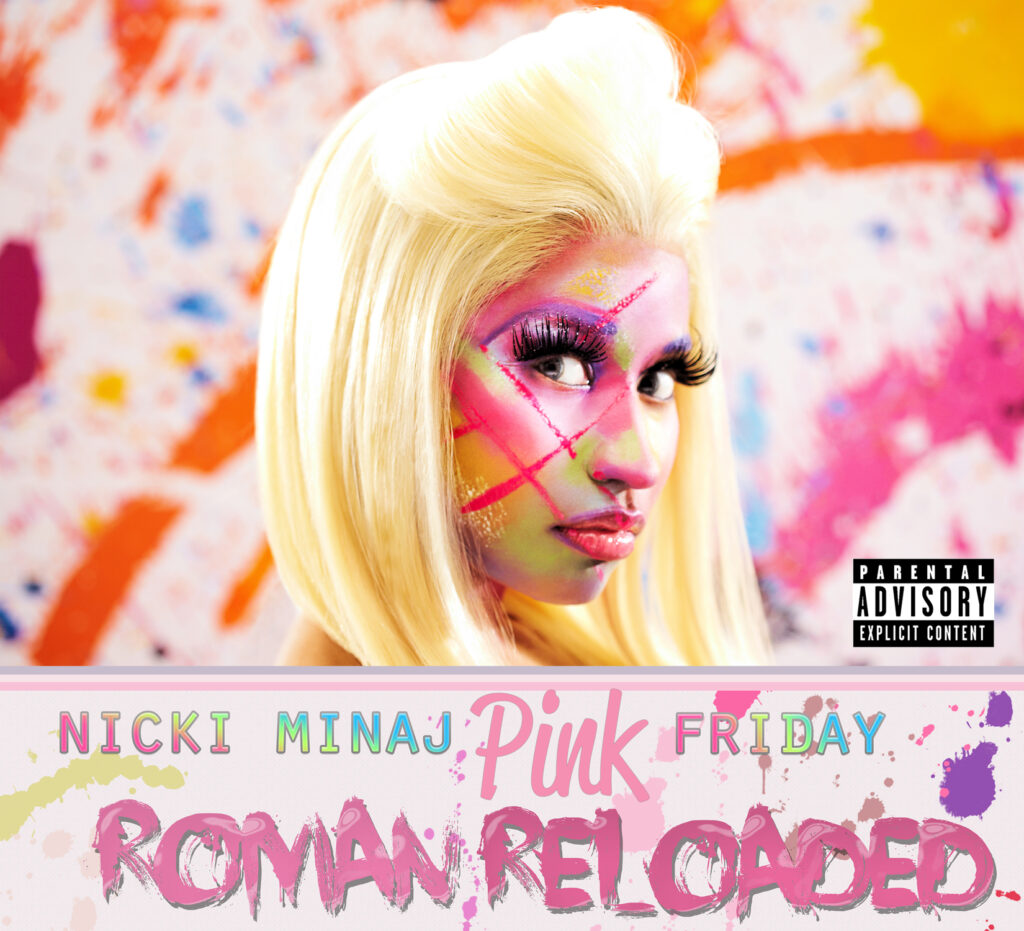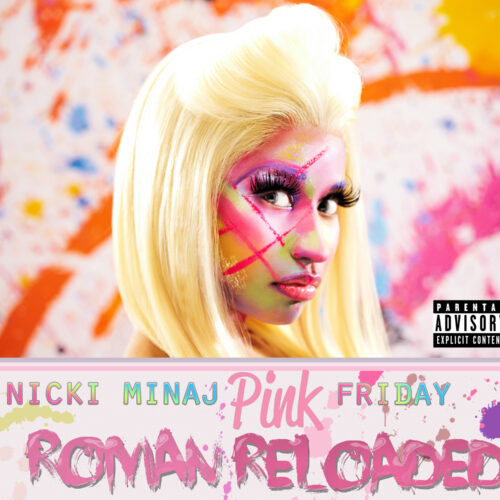Who needs stylistic, conceptual unity, when you have seven producers and Lil Wayne for a financier? In years to come, Pink Friday: Roman Reloaded might be considered a key album, but only in the estimations of music historians using the sublimely multifarious Speakerboxx/The Love Below as a point of diversion for the full length LP, and the part that it unwittingly played in the demise of black ‘human’ pop music. Because, ever since Outkast re-imagined ‘ghetto-fabulous’ as a post-human conceit, the bionically shape-shifting, Janus-jamboree that resulted gave carte blanche to lesser producers. Mistaking virtouso diversity – in the name of Afrofuturist superhumanity – for unfocussed album construction, producers began to dispense with masterminding a cogent sonic manifesto for their artists, killing in pop both the album aesthetic and the auteurist statement. These days, the charts’ super-royalty no longer make albums so much as singles collections. All things to all people, at once everything and nothing, Nicki Minaj’s second album is pop postmodernity in an advanced state of hollow, banal meaningless, and the first causality is Minaj herself.
With an increasing disconnect between artist and producer, the atomised modern-day event album renders actual talent a secondary concern. A natural misfit, Minaj’s individuality, her ‘monstrousness’, even, theoretically, her blackness, has been subordinated for the business of check-listing trending production tropes: the euphoric rave tracks (the house-pop ‘Pound The Alarm’; the euro-trance ‘Automatic’), the electro bangers (‘Whip it’, ‘Starships’), the ‘Umbrella’ facsimile (‘Marilyn Monroe’) the beat-fortified ballad (‘Right By My Side’) and many other homogenised cliches. At a stretch you could argue that the gaudy Michael Bay-does rap production is designed to reflect Minaj’s outsized persona; her machine-tooled superwoman take on braggadocio and mutant robo-sexuality dovetailing with the lurid, hyperreal blare of cutting edge ear-candy machines. But for the most part, ‘mixtape-Minaj’ has been erased from the sound. The only element differentiating this from Britney’s recent album is the star’s distinctive rap voice, which itself is frequently undercut by inanely chirpy productions or shoehorned in between sung choruses.
Obviously this isn’t a new thing in pop – Diana Ross was a non-descript device on which disco’s production titans imposed whatever they felt was necessary. But demoting the grotesquely fierce, provocatively oblique Minaj to the role of a human interface between audience and various technical specifications, is another degree of cynicism altogether. It’s absurd that labels spend millions locating and developing an original pop personality, only to bleach that personality out on the album. Essentially this odd, ‘female Weezy’ exists now only in the barraging video-promos. These days, more exclusively than ever before since the birth of MTV, it’s the videos that handle the image-making, while on record the artist is whatever the producer-for-hire wants her to be that day. The very same McProducers despised by the still unique MIA.
The first four tracks form a red herring of sorts, with the star getting a chance to bring a bit of herself to the tracks. Her personal style – essentially a sexually risque distortion of Missy Elliot – is ablaze, while a wave of weirdo-rap production squares up for the occasion. On ‘Roman Holiday’ she’s allowed a trite, lip-service framing device to establish the album’s loose concept/alter-ego (the titular ‘Roman’). With the star in imperious-queen mode: she talks in an English accent, offers a verse of ‘O Come All Ye Faithful’ and raps like a hysterical Tudor spinster. It’s what she does best, a rap-charged supercharging of GaGa’s performance-art pop.
Next comes the coldly spare ‘I Am Your Leader’: the Young Money sound filtered through Minaj’s Afro-alien aesthetic, as sci-fi modulations bubble up over a single subsonic kickdrum. The similarly simmering ‘Beez In The Trap’ meanwhile, is as detached and leftfield as a mainstream pop album is able to be – piercing pops of MIDI ringing through the draughty malaise of cavernous space. Again it’s the single kickdrum which anchors the almost weightless production. After which, all out dis-track ‘HOV Lane’ is Minaj almost completely untrammelled, her ‘blink-stink’ flow at full stretch. But by the time we get to closer and vintage Minaj cut ‘Stank Hoe’, so well established in your mind is the image of her cowing to the money-men, it sabotages the ‘Lady Weezy”s attempts at ’empowerment female’.
But it’s at this point on the album when lines like “I’m a lunatic and this can’t be cured with no elixir” begin to lose all credibility, as Minaj is suppressed and duly transformed into, what is effectively, a vocalist, and frequently, a submissive songstress. With the Minaj bit put to bed, relieved from the complicating factor of having to accommodate her style, the producers initiate a six-track run of conservative, cheering, melodically powerful pop songs that have absolutely nothing to do with Minaj’s art, and should make her an even more massive star. Considering that even Beyonce albums are persistently patchy, a single giant mass of soon-to-be-hits is a frightening sign of things to come – she’s here for good, it seems. The trio of four-to-the-floor ravers are the best of their kind, the most appealing since Kelis’ ‘Acapella’. Imagine ‘We Found Love’ x 3, but with a trifle more heart, groove and idiosyncrasy. Then what follows is a very spirit-crushed Trinadadian being drooled over by bible-belt tween-pop. ‘Young Forever’ is a 12-year-old Minaj doing Owl City with I-love-Jesus-and-my-fans stadium-pop choruses while the Beeny Man-featuring ‘Gunshot’ is sweet Caribbean-pop, and ‘Starships’ a bit like Bob Sinclair being gunned down by Deadmau5. ‘Marilyn Monroe’ is all ornate piano and crocodile tears, while ‘Right By Your Side’ is a startlingly insincere ballad with a classical music bedding and a short Minaj solo about dicks.
In her defence, the star avoids playing the role of prey or darling love interest to the various guesting male stars – Chris Brown, 2 Chainz, Rick Ross and Cam’ron. In short, she’s nobody’s bitch.
Young Money need to start building albums from the star’s style outwards – approaching pop appeal through the prism of their talent’s truly unique minds – if they want to avoid the generic. God forbid Janelle Monae should suffer the same fate…



